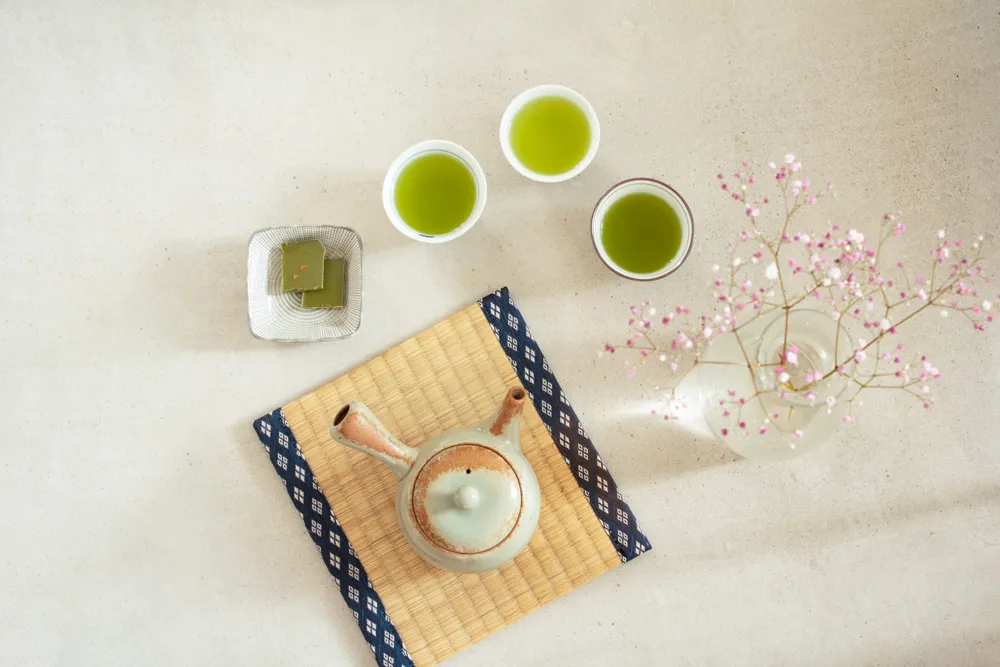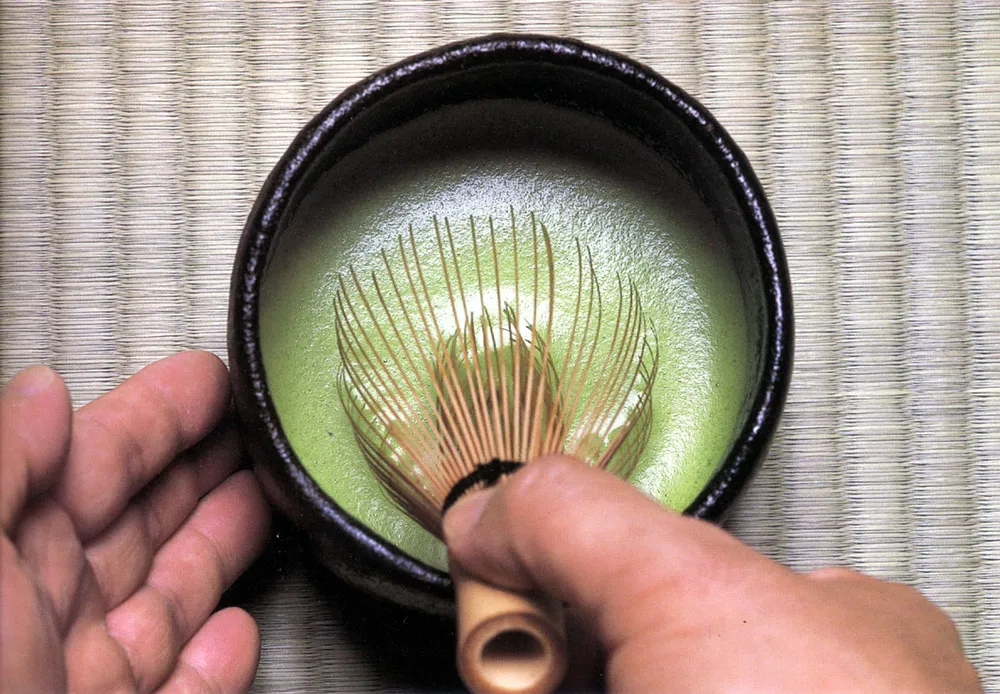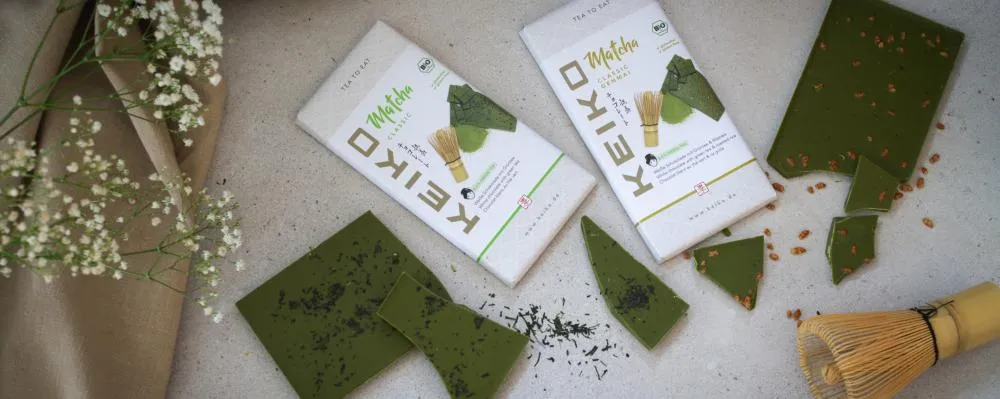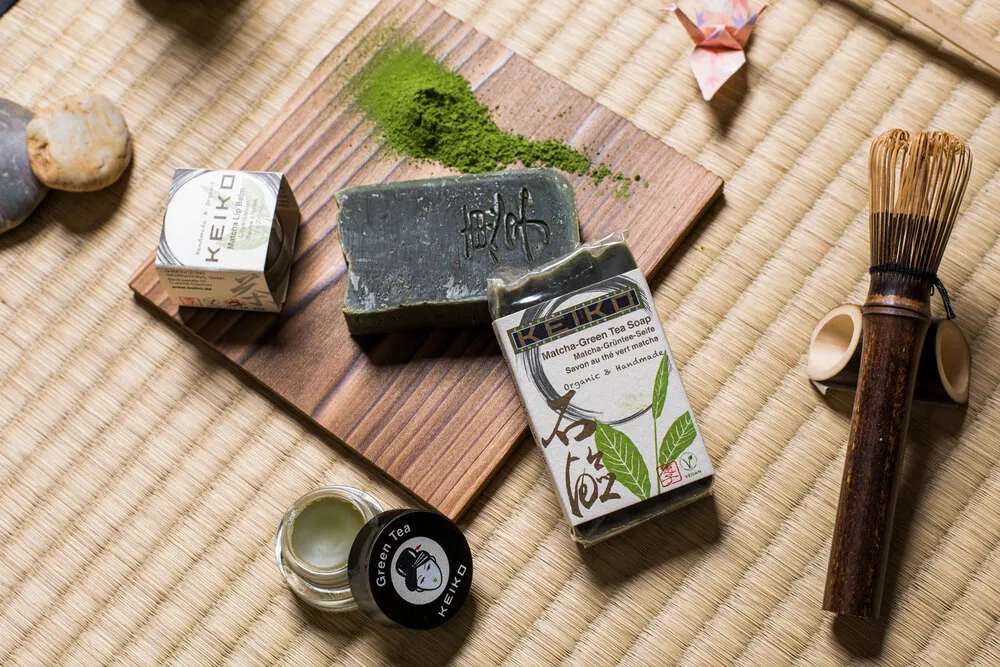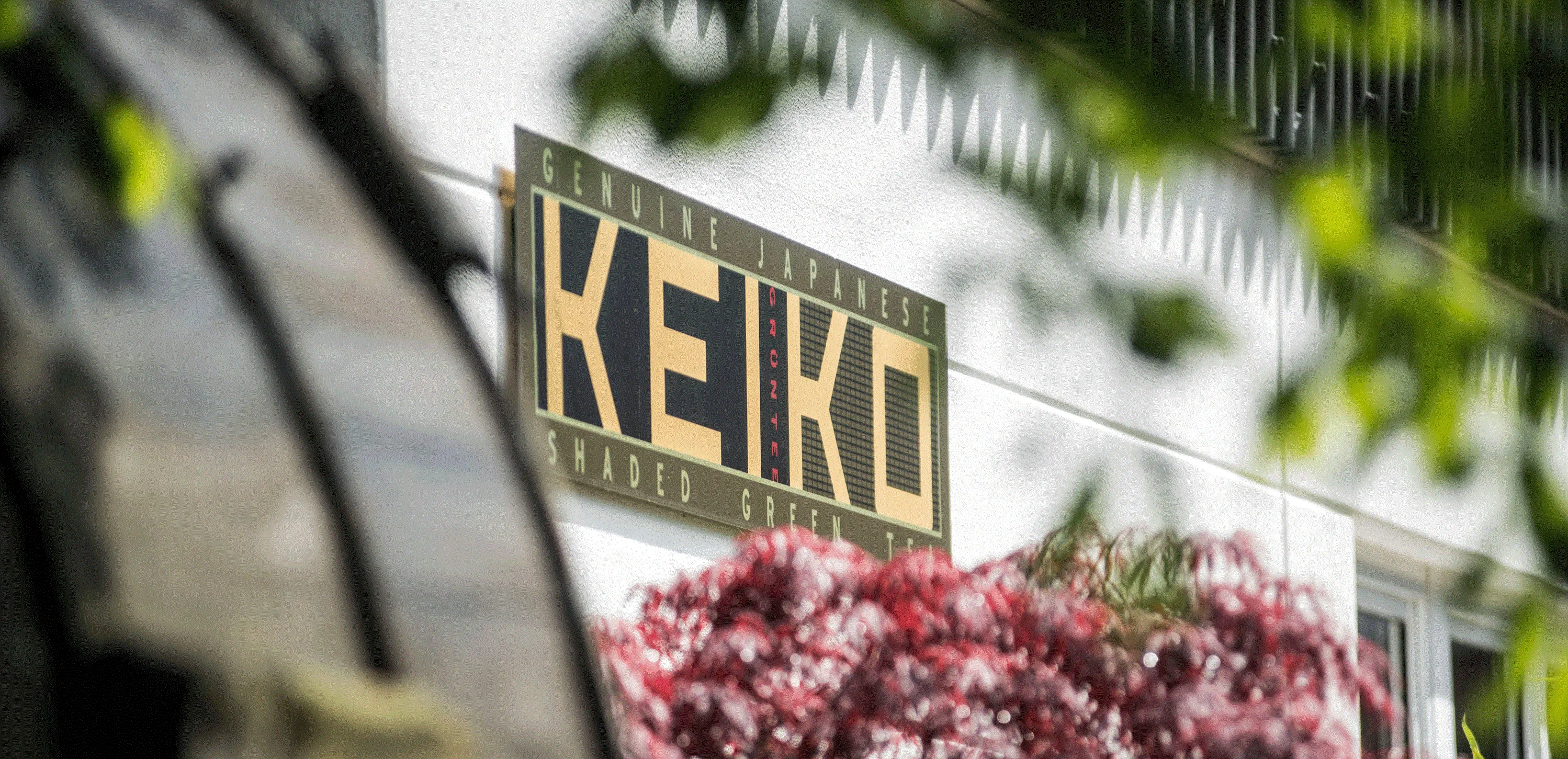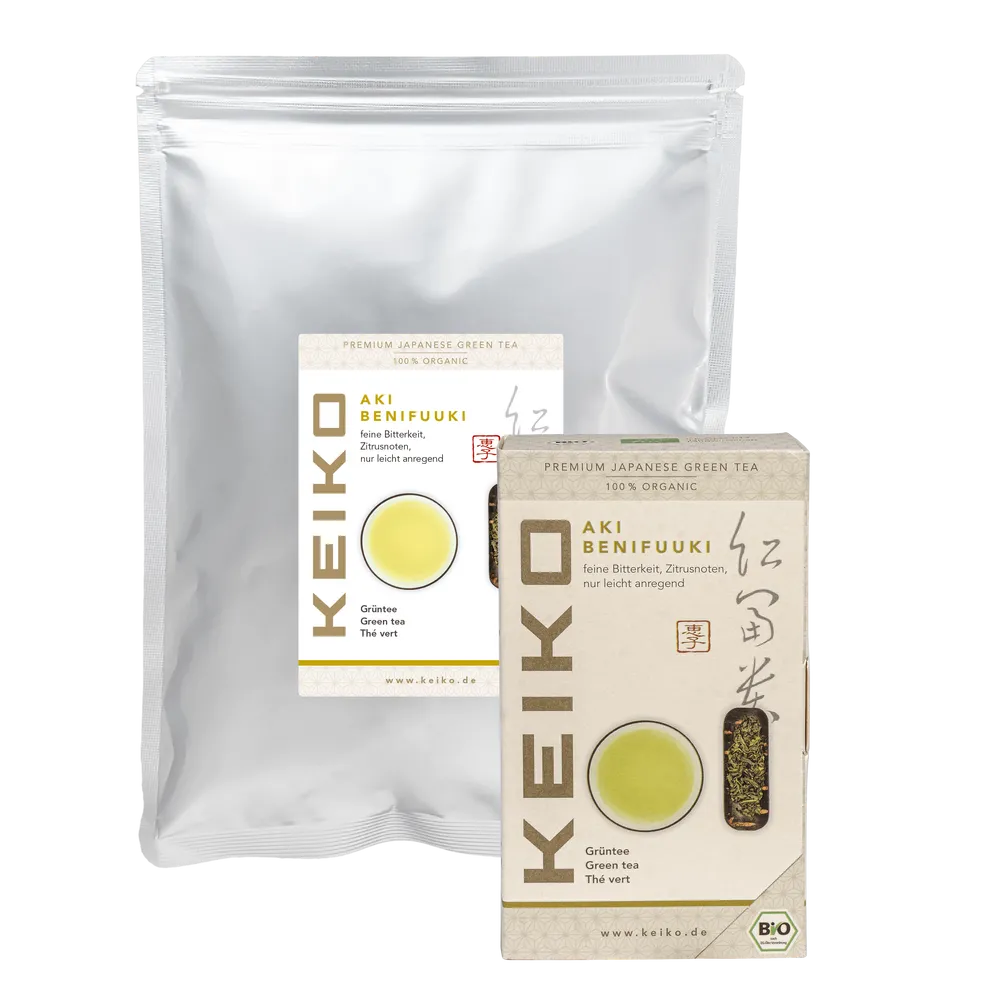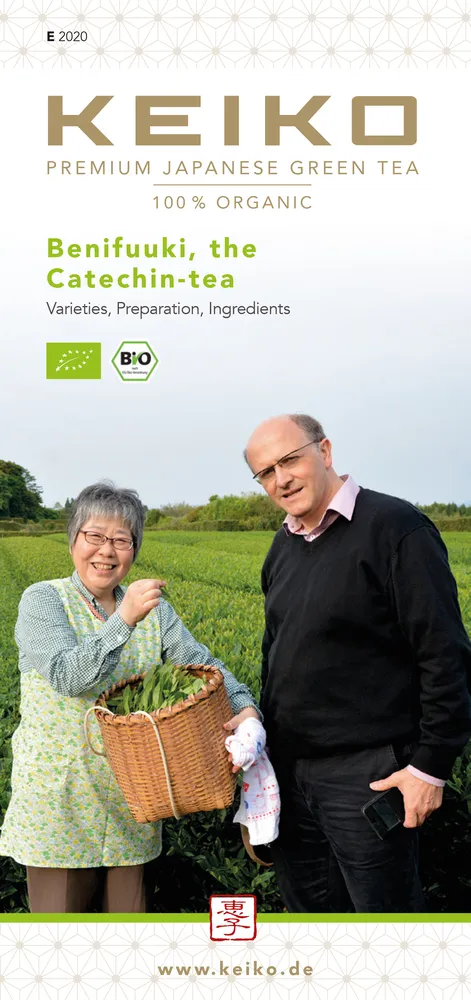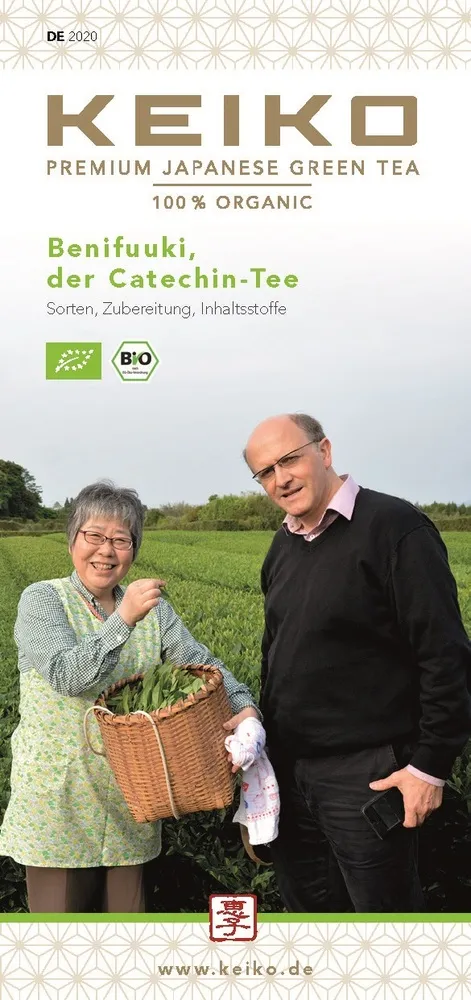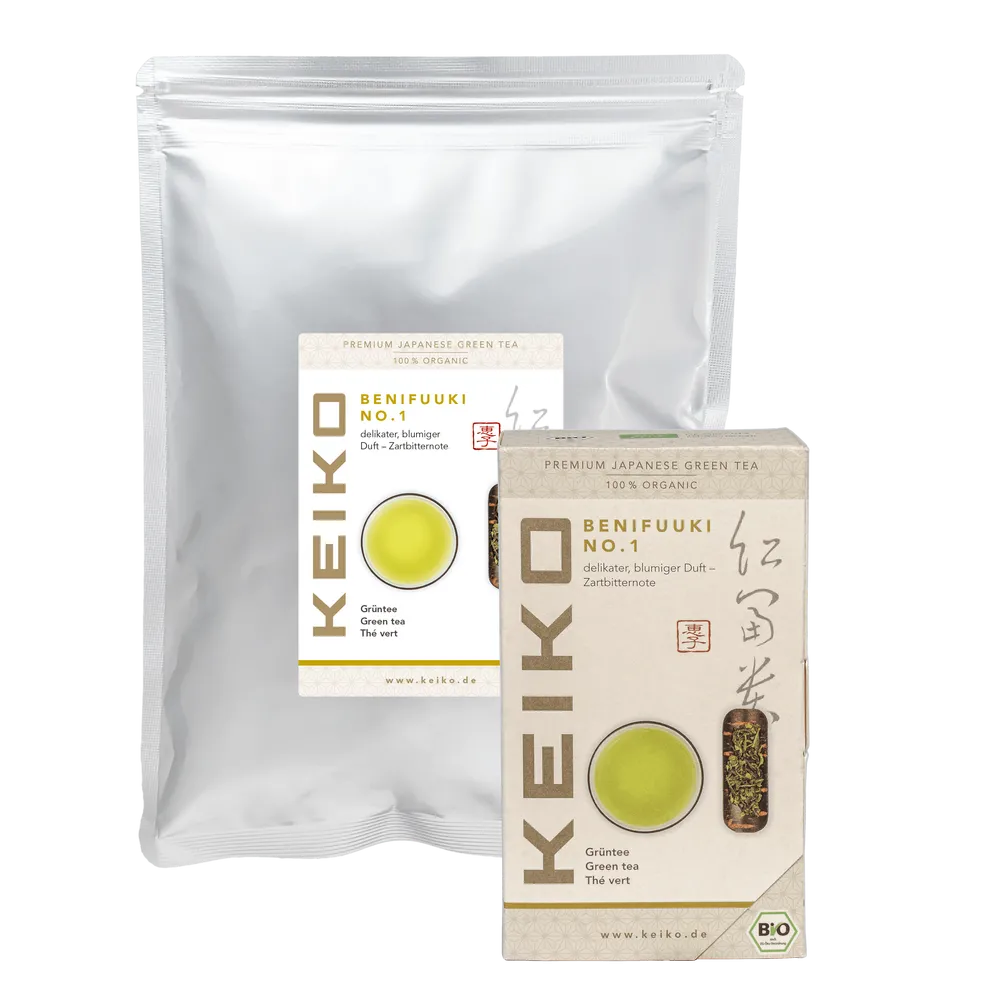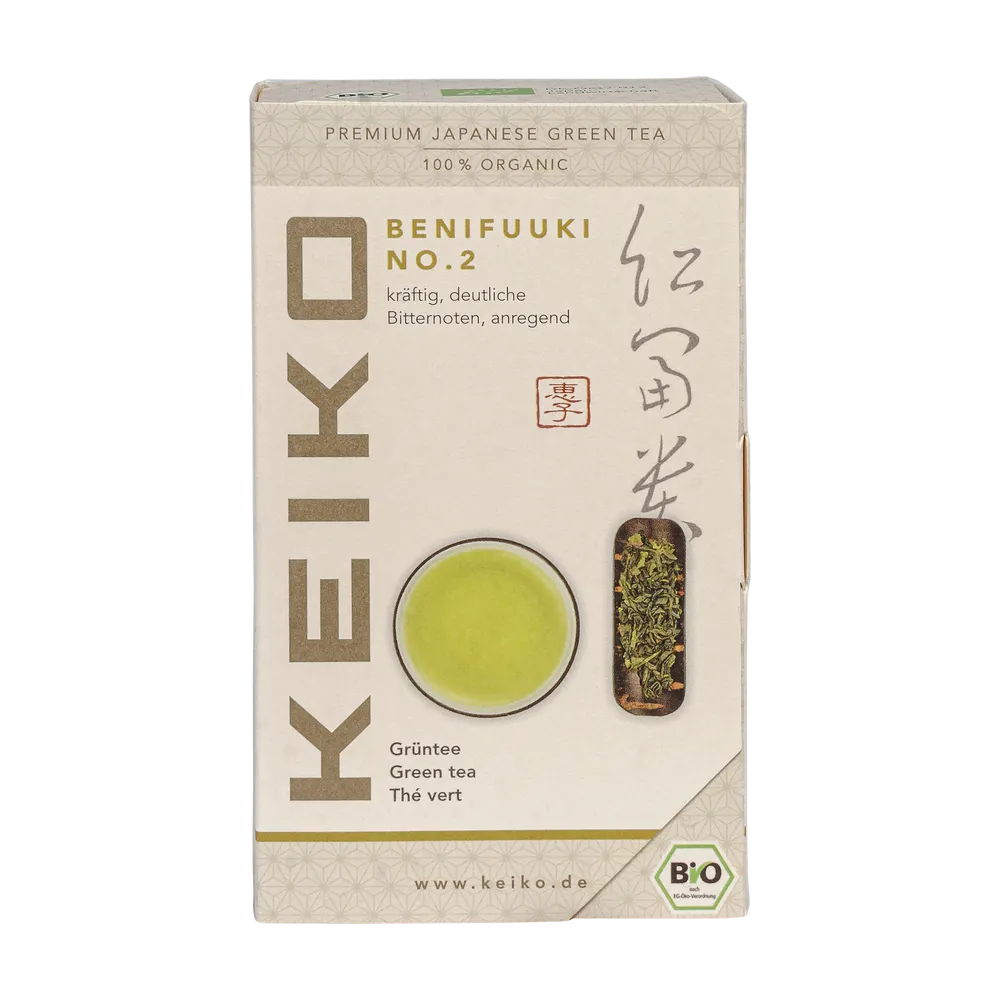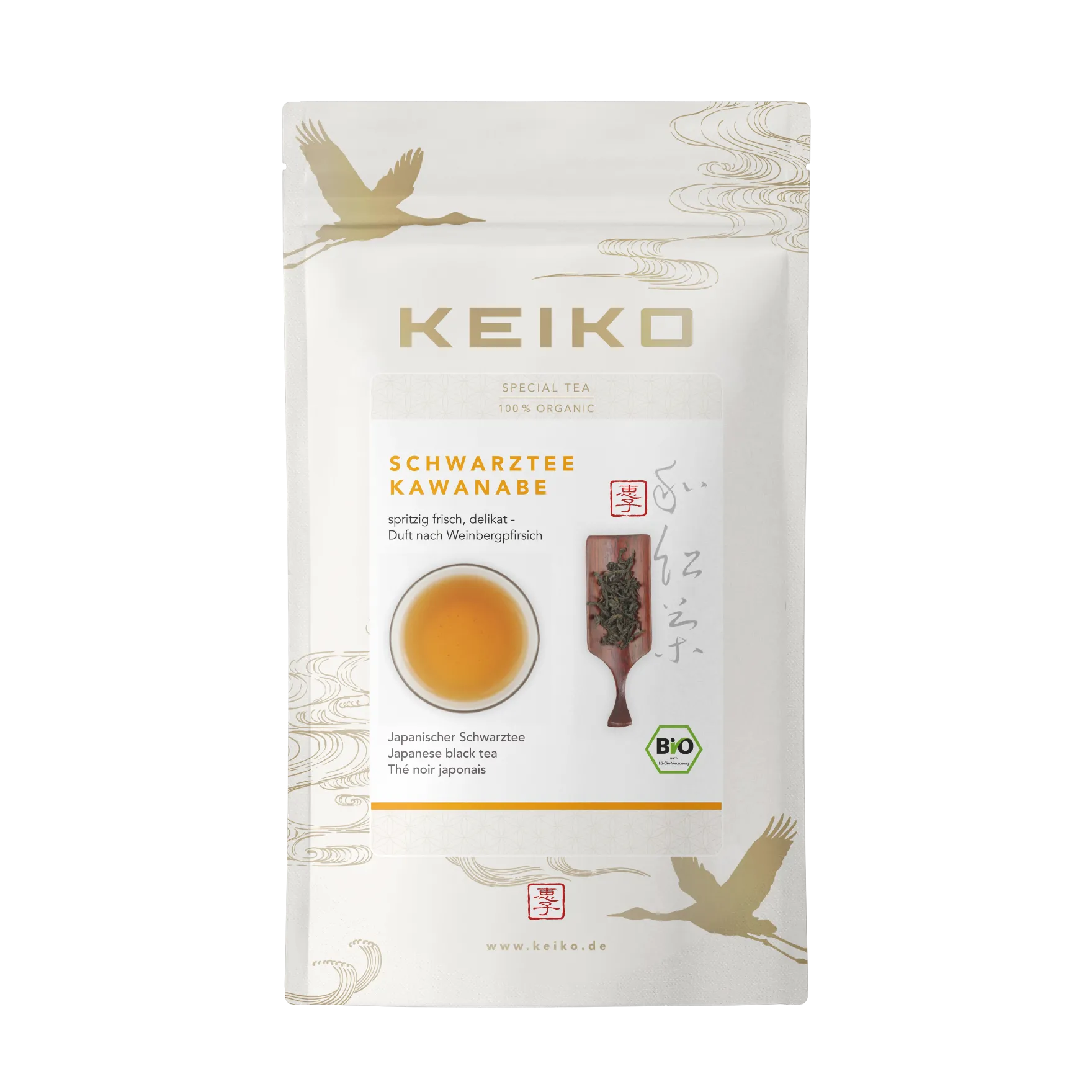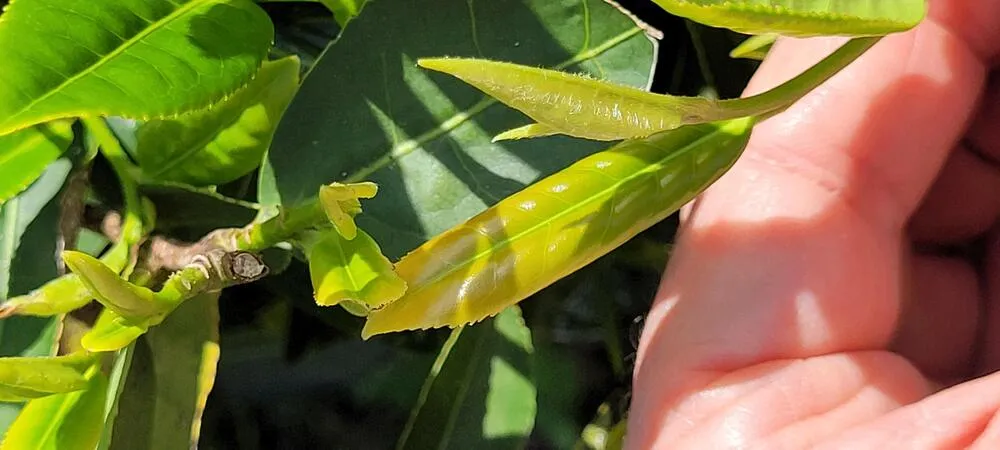
Benifuuki
紅富貴
べにふうき
The cultivar Benifuuki (also: Benifūki), developed as recently as 1993 in Japan, bears the scientific name Camellia Sinensis L.- Cultivar Benifuuki. It is a cross between the cultivars Makura Cd86 and Benihomare, a variety.which is subordinated to the tea plant Camellia Sinensis var. Assamica, which are otherwise mostly used for black tea. The name of the cultivar (Beni=red, Fuuki=richness) refers to the reddish colour especially of the younger Tea Leaves and of black tea (in Japanese Koucha = "red tea"), as well as the "richness of aroma and flavor". Benifuuki is used to make both green and black tea.
Benifuuki green tea is characterized by its particularly high content of catechins. In particular, the "methylated epigallocatechin gallate" or EGCG3 "Me (usually called short: EGCG3), which is for example in cold symptoms, hay fever, dermatitis, neurodermatitis soothing and also histamine-lowering effect. However, during fermentation to black tea, these active ingredients are converted to theaflavins.
In the much-cited book "Cancer cells do not like raspberries", the "Sencha Uchiyama" occupies the top position with an EGCG concentration of not quite 6% of the total weight¹. An analysis by the Kurz Institute showed a content of 8.9% EGCG in Benifuuki No.2 (Benifuuki No.1: 7.5%, Aki Benifuuki: 6%). Looking at the methylated epigallocatechin gallate 3''Me-EGCg, the difference from Benifuuki to other cultivars is even greater. The active ingredient content also varies depending on the time of picking.
To better understand the efficacy of this tea's ingredients and fully realize their potential, KEIKO is in dialogue with the Kagoshima Tea Research Institute and Japanese scientist Mari Maeda-Yamamoto, who has been researching the health properties of this unusual tea cultivar for many years.
At KEIKO Biofarm, in collaboration with the Kagoshima Tea Research Institute, a customized processing and steaming method was developed specifically for the cultivar Benifuuki, which makes the richness of sensitive ingredients (especially EGCG3) available from the leaf in the best possible way while stabilizing them.
By the way, the cultivar is considered frost-resistant and also very disease-resistant, making it particularly suitable for organic cultivation. As a rule, Benifuuki is not shaded.
Benifuuki Tee bei KEIKO
Average rating of 4.3 out of 5 stars
Content: 0.05 kg (€199.00* / 1 kg)
Available, delivery time: 1-3 working days (in Germany)
Available, delivery time: 1-3 working days (in Germany)
Free shipping
Available, delivery time: 1-3 working days (in Germany)
Average rating of 4.7 out of 5 stars
Content: 0.05 kg (€259.00* / 1 kg)
Available, delivery time: 1-3 working days (in Germany)
Average rating of 4.5 out of 5 stars
Content: 0.05 kg (€219.00* / 1 kg)
Available, delivery time: 1-3 working days (in Germany)
Average rating of 4.6 out of 5 stars
Content: 0.05 kg (€399.00* / 1 kg)
Available, delivery time: 1-3 working days (in Germany)
Average rating of 5 out of 5 stars
Content: 0.05 kg (€279.00* / 1 kg)
Available, delivery time: 1-3 working days (in Germany)
Content: 0.05 kg (€299.00* / 1 kg)
Available, delivery time: 1-3 working days (in Germany)

